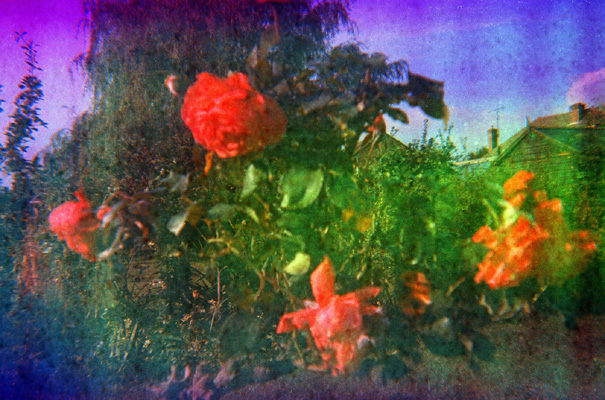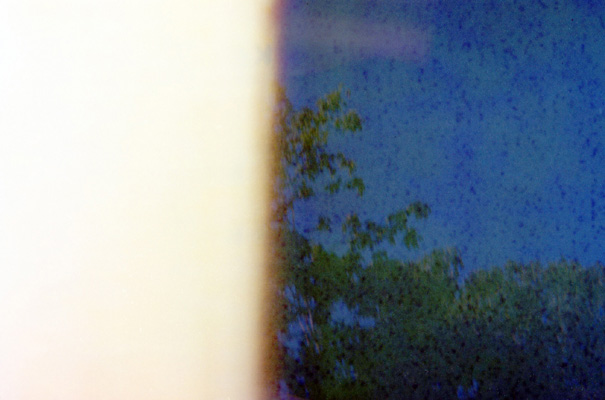|
John McDowall writes: One of two Kodak Brownie 127 cameras bought second-hand had a roll of exposed colour film inside. I do not know how long it had been there but possibly since the late 1970s or early 1980s. The film was processed successfully, with just some fading and glare in patches where the colour layers had separated. The photographs seem to have been taken on one occasion in a residential garden, with a common feature being red roses. Four of these show a young boy and, maybe, his father and grandmother, the other, unseen, person is the photographer, the mother perhaps. My book Of time: fermata is composed of six of these found photographs which have been set one to a series of consecutive recto pages, with the opposite pages blank. In place of the inner title page is one of staves as found in music manuscript pads, and in format and paper quality the book resembles published sheet music. On the last page is a short written text outlining the source of the images and closing with '... held in an indeterminable temporal suspension, forming a twofold pause of the photographed moments stilled and their time in abeyance.' Such loops of then now then, of a conjunction and layering of moments of the past in the present and of that present in turn assimilated in those evocations, are also found in the novels of Patrick Modiano (such as Pour que tu ne te perdes pas dans le quartier). In these there is a search to understand or reconstruct a history, a personal history, starting from a faint scrap of (often unreliable) memory the narrator/protagonist revisits and attempts to comprehend his and/or an acquaintance's past, tracing back through palimpsests of years and generations. John McDowall's book works reflect diverse manifestations of the bibliographic, and the influence of cinema and experimental writing, encompassing the movement and connections between instances of these. They present an activation of the space from page to page and from book to book, of reading and return to the book. He has just completed PhD research examining the extent to which, and by what means self-reflexive practices in literature may contribute to the exegesis of the medium of artists' books. |

